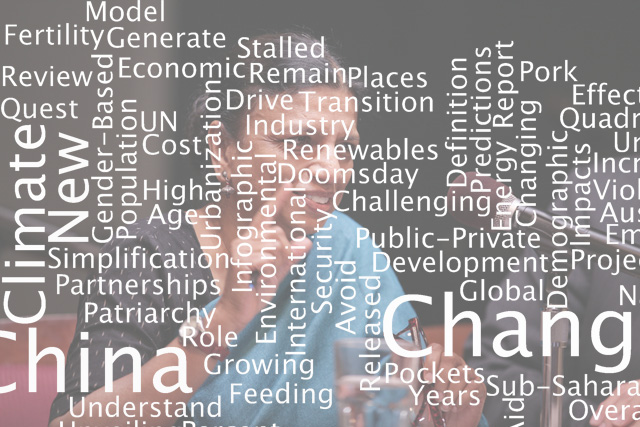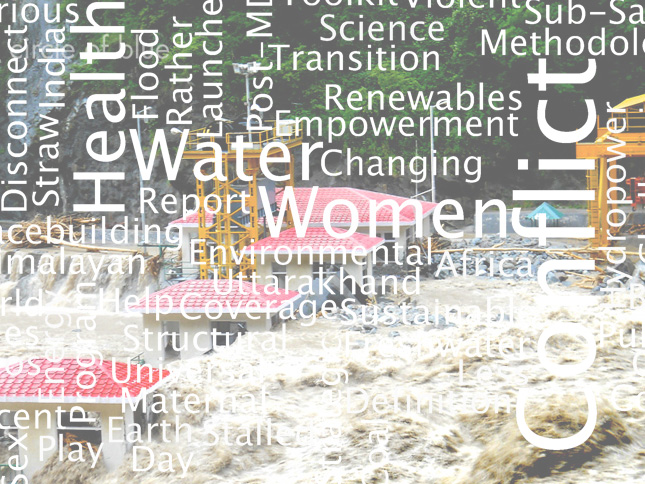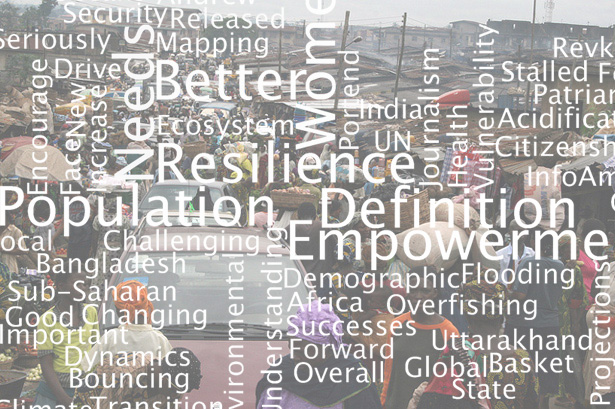-
New Report From Military Leaders Calls Climate Change “Catalyst for Conflict”
›Military leaders should be very concerned about climate change – that’s the message of a new report released this week by the CNA Corporation’s Military Advisory Board.
-
Top 10 Posts for April 2014
›
Water and women were common themes among the blog’s most popular posts last month.
On the aquatic front, USAID launched a new water and conflict toolkit, guest contributor Cameron Harrington took on the concept of impending “water wars,” and Keith Schneider introduced the “Choke Point: India” project.
-
Why They Care: Reproductive Health Champions Spotlight Personal Connections to Development, Environment, More
›“Saving the planet depends on women achieving full human rights, and that begins with reproductive rights,” writes the Natural Resources Defense Council’s Frances Beinecke in a new set of essays on reproductive health published by the United Nations Foundation and the Aspen Institute.
-
Top 10 Posts for March 2014
›
Last month brought a slew of major stories, including guest contributor François Gemenne’s take on a new direction for climate change and conflict research, a breakdown of climate change in the U.S. Quadrennial Defense Review, and USAID Administrator Rajiv Shah speaking at the Wilson Center about public-private partnerships. Our sister program, the China Environment Forum, also had a great showing with a new video featurette, infographic, and report launch on the potential of renewable energy.
-
A New Dimension to Geopolitics: Geoff Dabelko on the Latest IPCC Report
›“The Intergovernmental Panel on Climate Change is an attempt to get an international group of scientists together to assess what we know about climate change,” says Geoff Dabelko in an interview with the Wilson Center’s Context program. “That is not a quick process.”
-
To Save the Environment, Move Beyond Finger Pointing, Says Andrew Revkin
›“The idea that there’s an information deficit – that if you fill it, it’ll change the world – is fantasy,” says Andrew Revkin in an interview at the Wilson Center.
-
Top 10 Posts for February 2014
›
“Population was long perceived as mainly an issue in terms of people’s resource appetites: more people means more demand for stuff,” said The New York Times’ Andrew Revkin in an interview last month. “But in vulnerable places it actually means a bigger exposure to hazard.”
-
Andrew Revkin: Local Population Dynamics Crucial to Understanding Climate Vulnerability
›February 10, 2014 // By Schuyler Null“What’s become clear to me on population is that it’s really a local issue,” said Andrew Revkin in an interview at the Wilson Center. “You get the impression, ‘Oh didn’t we solve that problem?’” And to some extent, demographic shifts around the world are largely heading in the direction people anticipated, with a leveling off mid-century. But “no one really knows what happens then,” he said. “All it takes is a tiny diversion of fertility rates and things could really grow or shrink.”
Showing posts by Schuyler Null.






